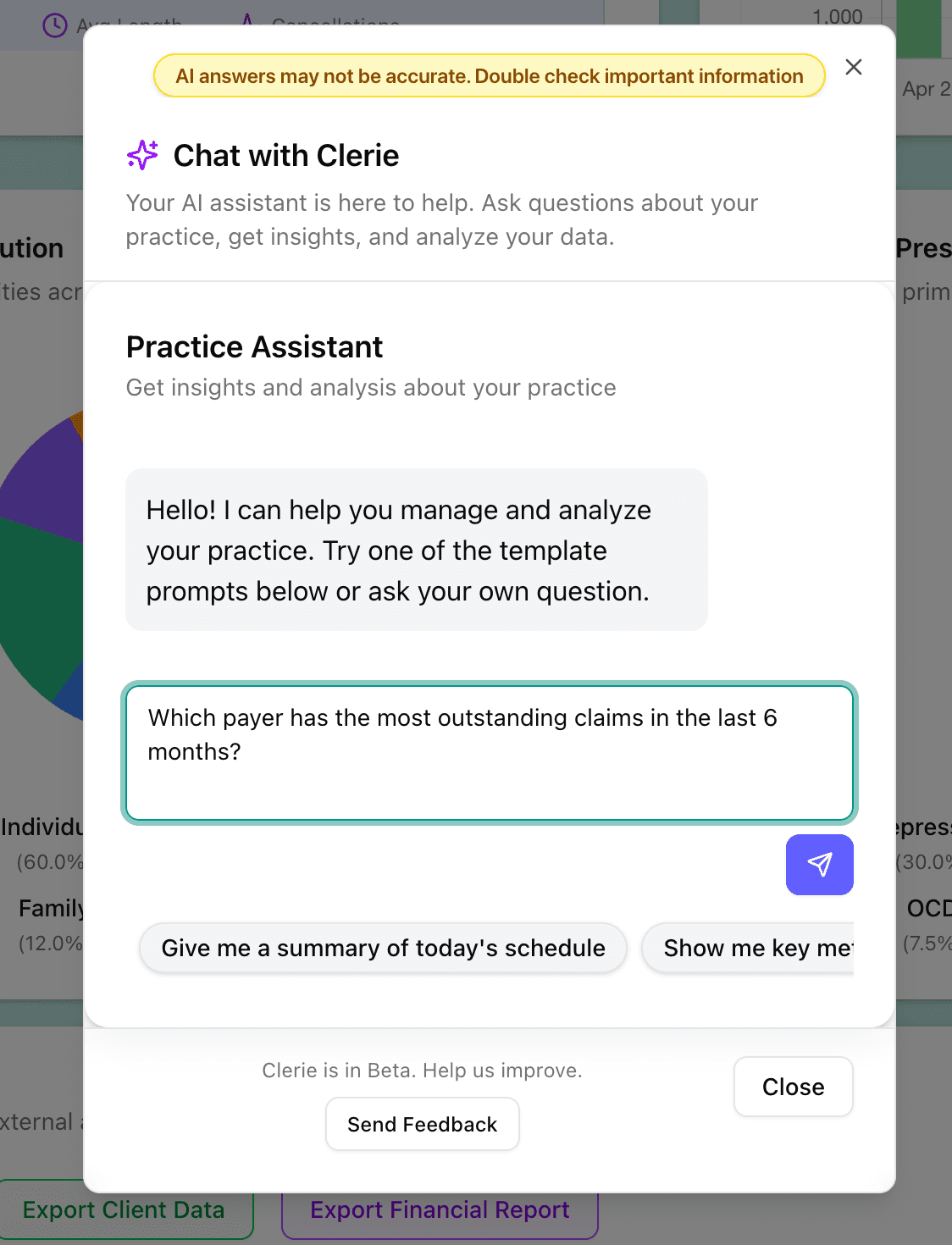Monday, September 15, 2025
The Future of AI-Powered Practice Management in 2025

How AI is Changing Practice Management
The transformation has been remarkable. What started as simple automation has evolved into sophisticated systems that can predict patient no-shows with 85% accuracy, generate clinical notes in real-time, and optimize scheduling based on patient preferences. But perhaps most importantly, these systems are learning and adapting to each practice's unique needs.
I've seen practices reduce their administrative time by up to 40% while improving patient satisfaction scores. The key is understanding that AI isn't replacing human judgment—it's enhancing it. When implemented thoughtfully, these systems free up practitioners to focus on what they do best: caring for patients.
The Real Benefits for Mental Health Professionals
For therapists, counselors, and wellness professionals, the impact has been particularly profound. The administrative tasks that once consumed hours of valuable time are now handled seamlessly in the background.
Consider the typical day of a mental health practitioner. Instead of spending 2-3 hours each evening writing notes, AI systems can generate comprehensive documentation during sessions. This isn't about cutting corners—it's about capturing the essence of each session while maintaining clinical quality.
The scheduling optimization alone has been a game-changer. I've worked with practices that reduced their no-show rates from 20% to under 8% by using AI to identify patterns and send personalized reminders. The system learns which patients respond best to text messages versus phone calls, and adjusts accordingly.
What Makes Modern AI Systems Different
The latest generation of AI tools goes far beyond simple automation. They're designed to understand the nuances of healthcare delivery, from the subtle changes in a patient's tone during a session to the complex billing requirements that vary by insurance provider.
One of the most impressive developments is the integration of natural language processing. These systems can now understand clinical terminology and context, making documentation more accurate and comprehensive than ever before. They don't just transcribe—they understand and organize information in clinically meaningful ways.
Implementation That Actually Works
The key to successful AI adoption isn't about having the most advanced technology—it's about implementing it thoughtfully. I've learned that the most successful practices start small, focusing on one or two areas where AI can make an immediate impact.
For example, many practices begin with automated scheduling and basic documentation assistance. This gives staff time to become comfortable with the technology while seeing immediate benefits. Once the foundation is solid, more advanced features like predictive analytics and outcome tracking can be introduced.
The human element remains crucial throughout this process. AI should enhance clinical judgment, not replace it. The most effective implementations I've seen maintain a clear balance between automation and human oversight.
The Financial Impact
The numbers speak for themselves. Practices that have fully embraced AI-powered systems typically see a 15-25% increase in revenue while reducing administrative costs by 30-40%. But the benefits extend far beyond the bottom line.
Staff satisfaction improves dramatically when repetitive tasks are automated. Patient engagement increases when scheduling is seamless and communication is timely. And perhaps most importantly, practitioners can focus on the clinical work that drew them to healthcare in the first place.
Looking Ahead
As we move forward, the potential for AI in healthcare continues to expand. We're seeing early developments in areas like predictive analytics for treatment outcomes and automated compliance monitoring. The practices that invest in these technologies now will have a significant advantage as the healthcare landscape continues to evolve.
The question isn't whether AI will become standard in healthcare—it's how quickly your practice can adapt to take advantage of these powerful tools. The practices that embrace this change now will be the ones that thrive in the years ahead.
The future of healthcare is collaborative, with AI and human practitioners working together to deliver better outcomes for patients. It's an exciting time to be in healthcare, and the possibilities are truly limitless.
